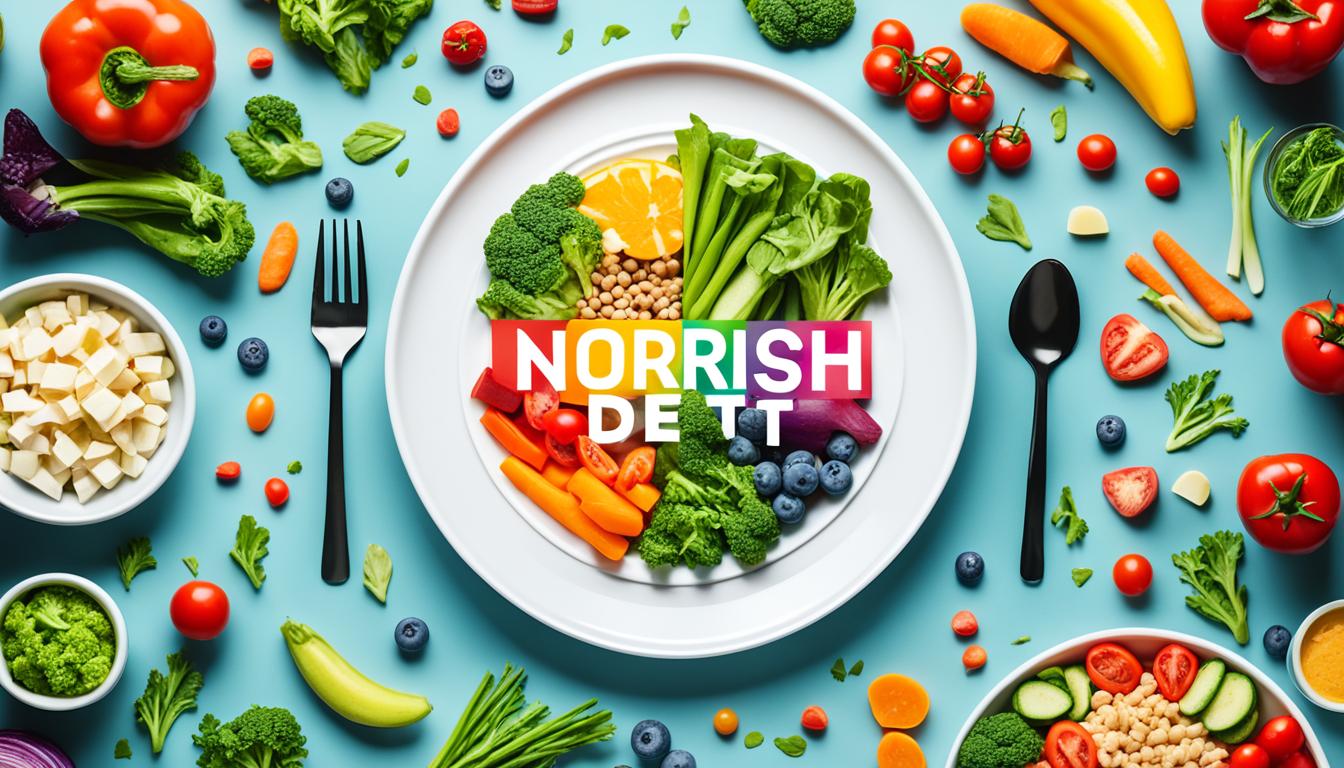Ana Themed Diets: Guide to Eating Well & Staying Lean
Did you know that ana themed diets are gaining popularity as a balanced and effective way to maintain a slender physique? Unlike extreme dieting methods, ana diets focus on gradual changes to food groups over a 6-week period, ensuring long-term sustainability and improved overall health.
Ana diets come with certain restrictions, such as avoiding fried foods, baked goods, processed foods, high-fat and processed meats, soda, artificial sweeteners, trans fats, and high-fructose corn syrup. Each week of the diet has a specific theme, such as reducing fat intake, increasing protein, consuming low-fat dairy, eating more fruits and vegetables, and opting for whole-grain options.
This approach encourages mindful eating and teaches individuals to make healthier choices within their dietary preferences and requirements. Ana themed diets can be adapted to various dietary needs, including low-salt, vegetarian, vegan, and gluten-free.
Key Takeaways:
- Ana themed diets involve making gradual changes to food groups over a 6-week period.
- These diets require avoiding fried foods, baked goods, processed foods, and high-fat and processed meats.
- The focus is on specific themes each week, such as reducing fat intake, increasing protein, and consuming low-fat dairy.
- Ana themed diets can be adapted to various dietary needs, such as low-salt, vegetarian, vegan, and gluten-free
- Regular exercise and mindful eating are encouraged to support long-term health and weight management.
Incorporating Mediterranean Flavors into a Healthy Diet
The Mediterranean diet is a popular choice for individuals looking to improve their overall health and well-being. This eating pattern is inspired by the traditional diets of countries surrounding the Mediterranean Sea, such as Greece, Italy, and Spain.
The Mediterranean diet emphasizes the consumption of whole foods, including:
- Whole grains
- Fruits
- Vegetables
- Healthy fats
- Protein
By incorporating the principles of the Mediterranean diet into your own eating habits, you can enjoy a wide range of delicious and nutritious meals.
One of the key benefits of the Mediterranean diet is its emphasis on whole grains. Whole grains provide a good source of fiber, vitamins, and minerals, and can help promote satiety and regulate blood sugar levels. Examples of whole grains commonly found in Mediterranean cuisine include:
- Brown rice
- Quinoa
- Oats
- Whole wheat pasta
In addition to whole grains, fruits and vegetables play a vital role in the Mediterranean diet. They are rich in essential vitamins, minerals, and antioxidants that can support overall health. To make your meals more flavorful and satisfying, incorporate a variety of fruits and vegetables into your daily meals.
Healthy fats, such as olive oil and nuts, are another essential component of the Mediterranean diet. These fats can provide numerous health benefits, including reducing inflammation and supporting heart health. You can dress your salads with olive oil, snack on a handful of almonds, or use avocado as a spread to include healthy fats in your diet.
Lastly, the Mediterranean diet encourages the consumption of protein-rich foods, such as fish, poultry, legumes, and dairy products. These protein sources are essential for building and repairing tissues, as well as maintaining a healthy immune system. Aim to incorporate a variety of protein sources into your meals to ensure you’re getting a well-rounded nutrition.
Now that you understand the key components of the Mediterranean diet, let’s explore five delicious Mediterranean diet-friendly recipes:
Turkish Bulgur Salad
A refreshing and hearty salad made with bulgur wheat, fresh vegetables, herbs, and a tangy lemon dressing. This salad provides a satisfying combination of fiber, vitamins, and minerals.
Easy Healthy Baked Salmon
A simple and flavorful dish featuring salmon fillets marinated with herbs and spices, then baked to perfection. Salmon is an excellent source of omega-3 fatty acids, which are beneficial for heart health.
Blueberry Almond Overnight Oats
A nutritious and convenient breakfast option that can be prepared the night before. Combine oats, almond milk, chia seeds, blueberries, and almonds for a delicious and filling start to your day.
Skillet Chickpeas and Greens with Quinoa
A satisfying vegetarian dish packed with protein, fiber, and vitamins. This recipe combines chickpeas, leafy greens, quinoa, and a flavorful blend of spices for a tasty and nutritious meal.
3-Ingredient Strawberries Romanoff
A simple and guilt-free dessert made with fresh strawberries, Greek yogurt, and a sprinkle of cinnamon. This sweet treat is full of antioxidants and provides a delicious way to end a meal.
The Truth Behind Food Gurus and Pseudoscience Diets
The rise of food gurus and the proliferation of pseudoscience diets have left many people confused and misinformed in their pursuit of a healthy lifestyle. Advocates for clean eating and real food emphasize the importance of consuming whole, unprocessed foods. However, the use of labels like “clean” and “real” can sometimes lead to food shaming and negative judgments.
It is important to approach dietary advice with a critical mindset. Many diets claim to be grounded in scientific principles, yet lack the necessary evidence to support their claims. These pseudoscience diets often promote quick fixes or extreme restrictions that can be both unsustainable and potentially harmful to one’s health. To make matters more complex, the obesity epidemic cannot be solely attributed to individual choices; genetic factors and the food environment also play significant roles.
As consumers, we need to be cautious about blindly following the guidance of self-proclaimed food gurus. Instead, it is crucial to rely on evidence-based nutrition recommendations from reputable sources. By taking a balanced approach and considering the broader factors contributing to the obesity epidemic, we can make informed choices that prioritize our well-being and long-term health.
Source Links
- https://www.webmd.com/diet/a-z/thin-for-life-diet
- https://www.everydayhealth.com/mediterranean-diet/how-to-lose-weight-on-a-mediterranean-diet/
- https://www.everand.com/book/449941843/Gene-Eating
- George Conway Weight Loss: My Healthy Journey! - May 19, 2024
- Menopause Diet: 5-Day Plan to Shed Pounds - May 18, 2024
- Diet Cranberry Juice: My Healthier Sip Choice - May 16, 2024




Post Comment
You must be logged in to post a comment.